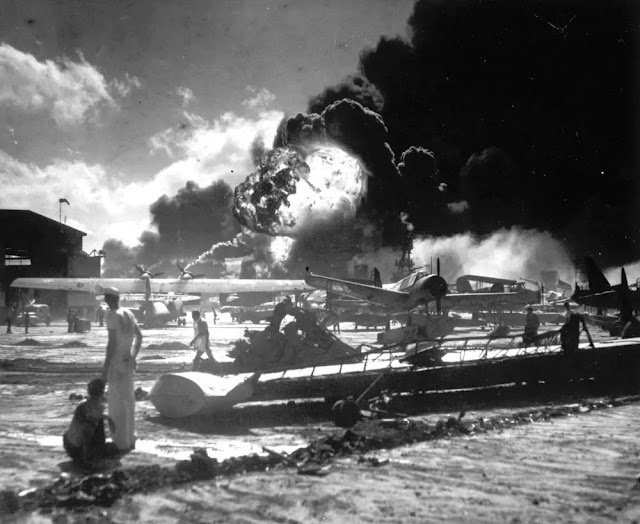At 7:55 a.m. Hawaiian time, a Japanese dive bomber emblazoned with the red symbol of the Rising Sun appeared from the clouds above the island of Oahu. A swarm of 360 Japanese warplanes then descended on the U.S. naval base at Pearl Harbor, launching a ferocious surprise attack. This devastating assault struck a critical blow against the U.S. Pacific fleet, irrevocably drawing the United States into World War II.
On the morning of December 7, 1941, the United States was caught off guard by the devastating Japanese attack on Pearl Harbor. Despite diplomatic tensions and intelligence suggesting an imminent Japanese assault, the military had not taken adequate steps to increase security at the critical naval base. That fateful Sunday, many servicemembers were granted leave to attend religious services off-base. At 7:02 a.m., radar operators detected large aircraft approaching from the north, but were instructed not to sound the alarm, as American B-17 bombers were expected to arrive around that time. Consequently, the Japanese air raid came as a complete surprise, inflicting catastrophic damage on the Pacific Fleet.
The attack on Pearl Harbor was devastating for the Pacific fleet. Five of eight battleships, three destroyers, and seven other ships were sunk or severely damaged, rendering much of the fleet useless. Over 200 aircraft were also destroyed. In total, 2,400 Americans were killed and 1,200 were wounded, many while bravely trying to defend against the assault. Japan's losses were far less, with around 30 planes, five midget submarines, and fewer than 100 men. Fortunately, the three Pacific fleet aircraft carriers were out at sea on training exercises and avoided destruction. These carriers would later exact revenge against Japan at the decisive Battle of Midway six months later, marking a major turning point against the previously dominant Japanese navy.
The day after the attack on Pearl Harbor, President Roosevelt addressed a joint session of Congress, declaring, "Yesterday, December 7, 1941 - a date which will live in infamy - the United States was suddenly and deliberately attacked by the Empire of Japan." Following a brief but forceful speech, he asked Congress to approve a resolution recognizing the state of war between the U.S. and Japan. The Senate voted unanimously, 82-0, for war, and the House of Representatives approved the resolution 388-1, with the sole dissenter being pacifist Representative Jeannette Rankin of Montana, who had also opposed U.S. entry into World War I. Just three days later, Germany and Italy declared war on the United States, prompting the U.S. government to respond in kind.
Check Out:
















No comments:
Post a Comment